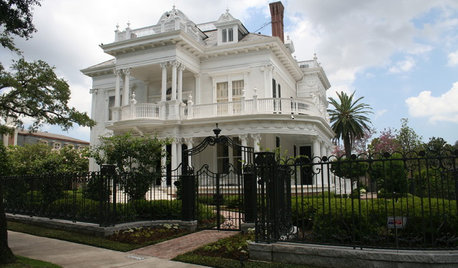I came out of this film this afternoon wrung dry. I hardly know where to start to talk about it. Upton Sinclair's novel Oil! was the genesis of this film. I've never read it--how many of us ever got beyond The Jungle? It's the story of Daniel Plainview (Daniel Day-Lewis), an early 20th-century oilman, and the film examines the beginnings of the capitalist takeover of the West. It's also the story of Eli Sunday, a young evanglical, and the beginnings of that movement are also recounted. The tales parallel each other in the single-minded goals of each character and what they are willing to compromise in order to succeed. Up go the oil derricks, up goes the church, each man sure of the rightness of his position. Secular and religious greed (money and power in both cases)are portrayed as two sides of a coin and there's no "winner" in this competition. If you are anything like me, the ending will leave you gasping.
Day-Lewis--that FACE, and the attention Anderson pays to it in its many moods, is a knockout, a barometer of feelings: greed, cunning, distrust, intellect, imagination, calculation--even, once in a while, love for his son (who may or may not be really his son, but merely a "family man" prop). He simply fills the screen even when he's not in close-up. D-L's American accent is really good, not what I expected at all in terms of his measured inronations, the general quietness with which he speaks, his sometimes almost preacher-like incantations when he is trying to get poor people to sell land to him.
The film begins, as you may already have read, with twenty minutes of D-L scrabbling in a gold mine and then in his first efforts at oil mining. The lack of speech as men merely work, literally grub in the earth, accompanied by a sound track (I can't remember the artist's name, darn it) that literally screeches with drama and highlights both the work and the unforgiving landscape in which it occurs. One of the folks I was with did not like the track, but I thought it was fiercely appropriate for the episodes it accompanied. Then D-L strikes it big and looks as if he is on top of the world. But an accident in which his son loses his hearing and the opposition from Paul Dano as Eli Sunday, the evangelical leader of the "Church of the Third Revelation," conspire against his easy rise from rags to riches.
The film has been compared to Citizen Kane in terms of the trajectory of Daniel Plainview, and to Moby Dick in terms of his obsessive, implacable drive, and it's true that Anderson makes no excuses for drawing on other films. Yet the film is none of those films in the long run, and D-L's gradual dissolution is as dark and terrifying as any I have ever seen in any film. He is never "likable" but then neither is anyone else in this parade of self-interested men. But, boy, is he fascinating and his machinations intriguing. Day-Lewis will probably be nominated for an OScar for his performance--he might even win it--but whatever the outcome he is truly memorable.
Paul Dano (he was the philosophical brother in >Little Miss Sunshine is the healer/preacher and what was amazing was that this young actor actually held his own against the dominating presence of D-L. His portrait of the messianic quality of evangelism and the corruption to which it inevitably leads (think any of the televangelists that have come to grief in the last few decades) is captured in his assertion, late in the film, that "I'm on the radio now." I thought the funniest scene in a film that is nearly devoid of humor (and women) is in the scene of D-L's "conversion" when he jumps through every phony religious hoop imaginable just to get his pipeline. What a performance.
One last thing: the landscape. I was reminded of No Country for Old Men in its stark beauty, but in this case it was really about not the people on it but the oil beneath it. Everyone tries to "own" a piece of this place, and one can almost see its very richness being gobbled up and divided. This period in American history precedes the Gold Rush of 1849, but like that event, this exploitation of nature does not reward its exploiters with any kind of "happy ending." In fact, the ending is so not happy that one feels bowled over at the end. We (five of us) came out of the theater slightly dazed. I'd like to see it again to put it all together more coherently.













andie_rathbone
PidgeOriginal Author
Related Discussions
Using Fresh Cow/Goat Blood as Hot Compost Activator
Q
Blood and Bone meal, Miracle liquid fertilizer, Neem oil and Marphyl
Q
Dragon's Blood on His Hands
Q
Insulin Resistance---managing blood sugar
Q
nancy_in_venice_ca Sunset 24 z10